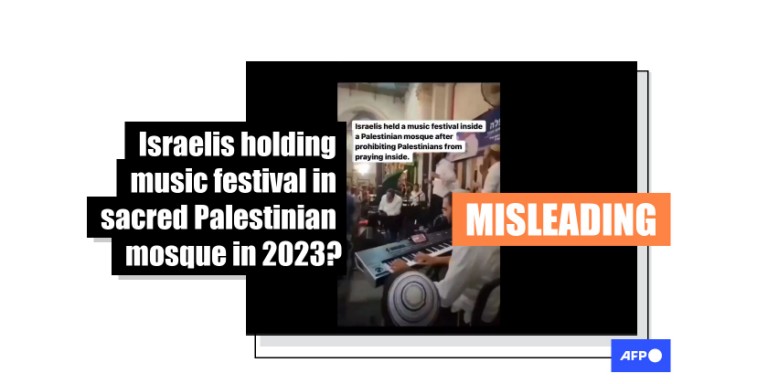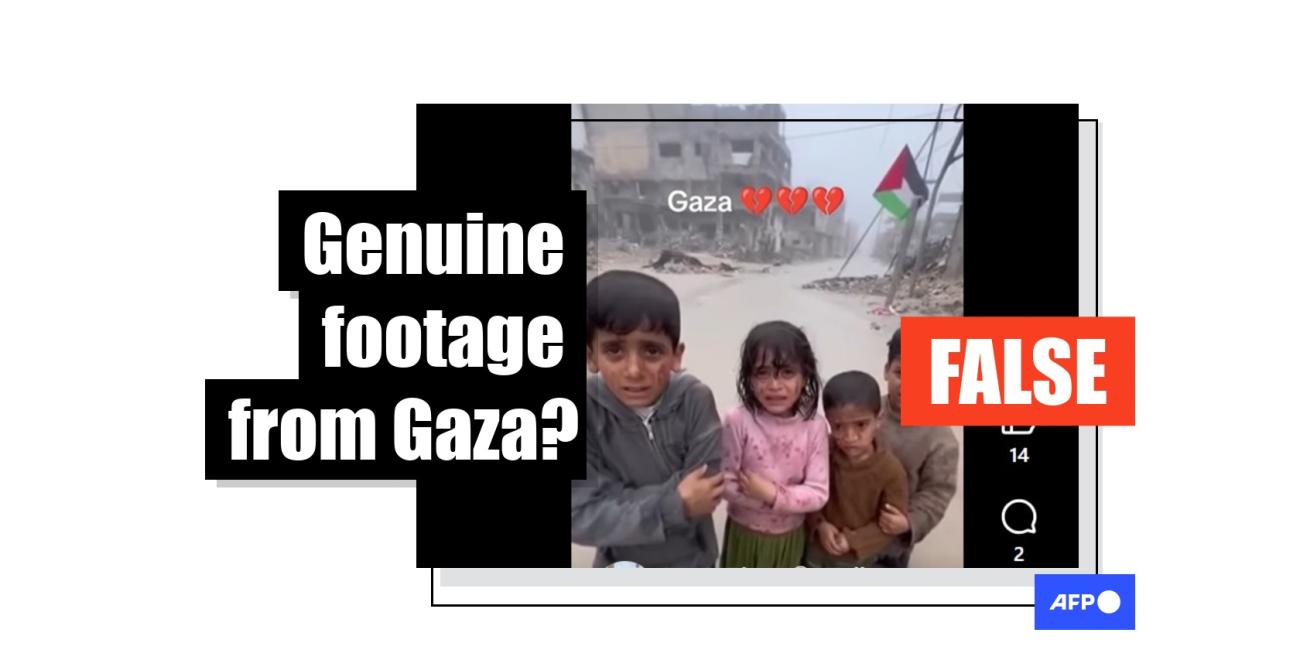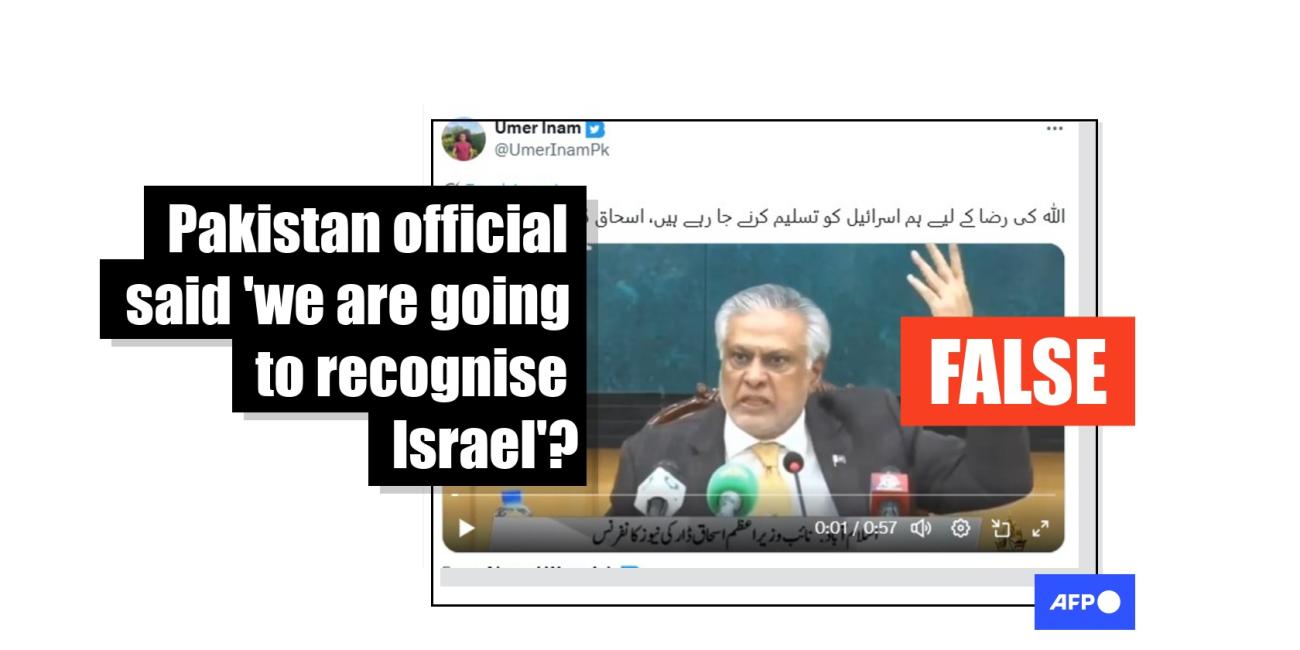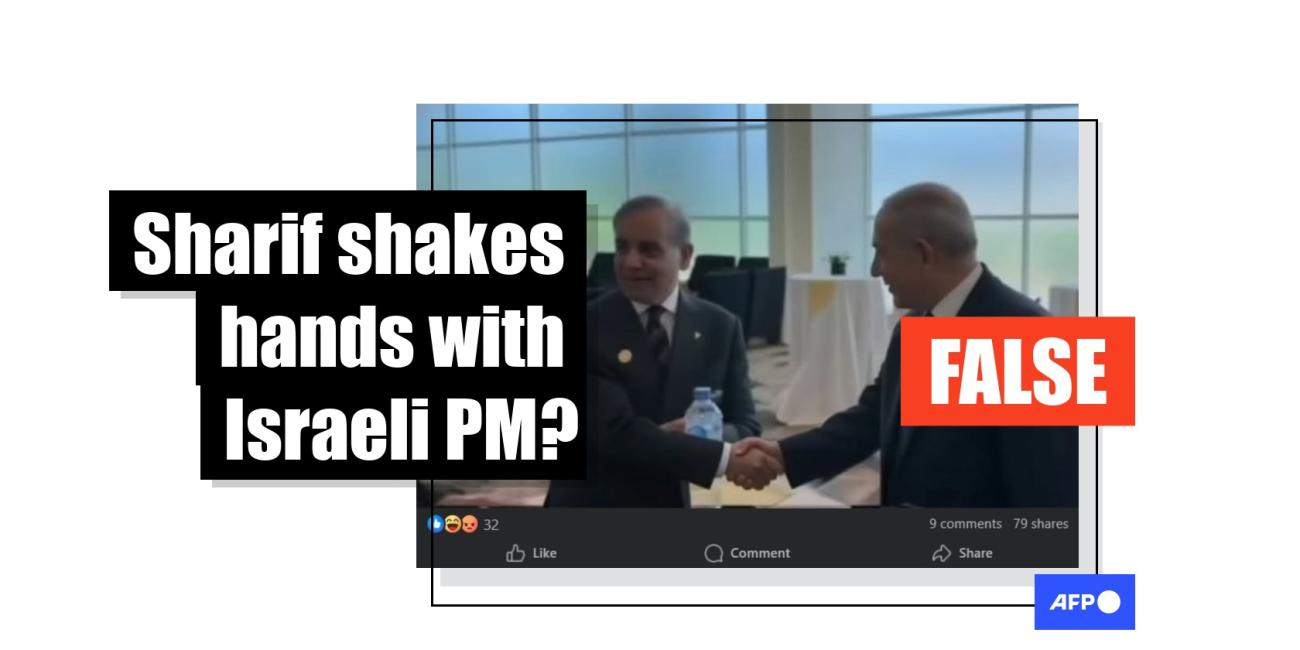
Old clip of Jewish worshippers dancing in mosque misleadingly shared as 'from November 2023'
- This article is more than two years old.
- Published on January 31, 2024 at 10:11
- 4 min read
- By AFP Indonesia
"On Sunday, Israel took over the Ibrahimi mosque -- one of the holiest sites for Muslims -- and held a music festival in it," reads part of the Indonesian-language caption of a post shared on social media platform X here on November 10, 2023.
"Palestinians were even prohibited from praying in their own mosque."
The holy site -- known to Muslims as the Ibrahimi mosque and to Jews as the Cave of the Patriarch -- is revered by Muslims and Jews alike. It is located in the West Bank city of Hebron, scene of frequent clashes between Palestinians, Jewish settlers and Israeli forces (archived link).
The 27-second clip shows a group of mostly men, wearing yarmulke, dancing and singing along to a musical performance in what appears to be a religious building.
English-language text overlaid on the video reads: "Israelis held a music festival inside a Palestinian mosque after prohibiting Palestinians from praying inside."
A second overlay later in the video reads: "The historic Ibrahimi Mosque in the Palestinian city of Hebron is the same mosque where an American Israeli shot and killed 29 Palestinians in a deadly massacre in 1994."

The same video racked up more than 247,000 views after it was also shared alongside similar claims elsewhere on Facebook here, and on SnackVideo here and here.
Similar English posts also appeared on various platforms, such as Instagram, YouTube, TikTok and X.
The video circulated online as Israel continued a relentless military offensive that has killed more than 26,700 people in Gaza, about 70 percent of them women and children, according to the health ministry in the Hamas-run territory.
The offensive began in response to an unprecedented attack by the Palestinian militant group Hamas that resulted in the deaths of about 1,140 people, mostly civilians, according to an AFP tally based on Israeli official figures.
Violence has also flared in the West Bank since the beginning of the war. More than 360 people have been killed by Israeli troops and settlers, according to the Palestinian health ministry in Ramallah.
The video shared in social media posts, however, predates the war by more than one year.
Old video
Reverse image and keyword searches show the video circulated in posts by regional media outlets that cover Palestinian issues as well as Jewish community channels in October 2022.
The same video was published by Middle East Monitor and Middle East Eye on October 3, 2022 (archived links here and here).
The Middle East Monitor's headline reads, "Israeli settlers sing and dance in Ibrahimi Mosque". Text overlaid on the video says, "Israeli settlers partying in sacred Palestinian mosque".
The Middle East Eye video is titled: "Israeli settlers hold music festival in Hebron’s Ibrahimi Mosque".
Below is a screenshot of the genuine video published by Middle East Eye on YouTube:

The clip was also published on X by "Jewish Community of Hebron - Hebron Fund" on October 6, 2022 (archived link).
Its caption, which uses an alternative name for the Cave of Patriarchs, reads: "Thank you to everyone who came to the central slichot service at the Tomb of Machpela in Hebron! We can't wait to see everyone at the Succot Music festival on October 12th. Shana tova!”
"Slichot" or "selichot" comes from the Hebrew word meaning "forgiveness", and refers to a series of prayers recited in the weeks or days leading up to Rosh Hashanah, the Jewish new year, until Yom Kippur, one of the religion's holiest days (archived links here and here).
"Succot" or "Sukkot" is a weeklong Jewish festival, which begins five days after Yom Kippur, the Day of Atonement (archived link). In 2022, the festival was observed on October 9-16 (archived link).
Shared religious space
According to information from the Israeli website Hebron.org.il, the holy site has separate sections of Jewish and Muslim prayer services with separate entrances (archived link).
But it adds that the entire site is reserved solely for Jewish prayer services for ten days a year, and similarly reserved for Muslim prayer services for another ten days a year.
A schedule for 2022 on the website shows the site was reserved on October 2, 2022 for "Ten Days of Repentance slichot" (archived link).

The website adds: "This arrangement has been coordinated for over 20 years between the Muslim Waqf and the Israeli government.
"Most holidays go smoothly with coordination between the IDF, Waqf and emergency medical services from both the Israeli and PA [Palestinian Authority] sides of the city assisting when needed."
This characterisation of the arrangement, however, does not appear to be shared by Palestinians.
When the site was again reserved for use by Jewish worshippers in October 2023, articles by Turkey's Anadolu Agency, the Palestinian WAFA News Agency and The Palestinian Information Center suggested this was a one-sided arrangement (archived links here, here and here).
The Palestinian Information Center article quotes the director of the Ibrahimi mosque Ghassan al-Rajbi as saying Israeli closes the mosque for 10 days a year on the "pretext of Jewish celebrations and deprives Muslims of their right to worship and pray at their own holy site".
The war in Gaza has sparked a slew of misinformation related to the Israeli-Palestinian conflict, some of which AFP has debunked here.
Copyright © AFP 2017-2026. Any commercial use of this content requires a subscription. Click here to find out more.
Is there content that you would like AFP to fact-check? Get in touch.
Contact us




